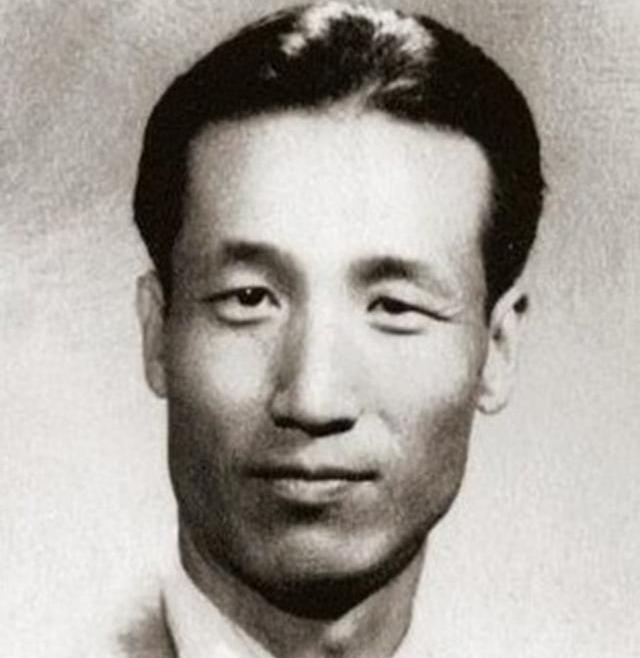During the revolutionary war, some people who were engaged in intelligence work hidden within the enemy provided a lot of useful information for the revolutionary armed forces led by the CCP.
It is precisely because those who risked their dangers to engage in intelligence work that they transmitted back key information that the senseless sacrifices of the CCP's revolutionary armed forces were reduced. Many of them were made public after the founding of New China, and their work was generally recognized.
However, there are always some people who, because of the special nature of their status, fail to disclose their past experience in intelligence work in a timely manner, and their children are implicated as a result.

In 1997, Luo Qingchang, former director of the Central Investigation Department, deliberately published an article in the Beijing Daily to remember Comrade Yan Youwen.
In the article, he highlighted the contributions made by Comrade Yan Youwen, which seemed to be a memory of comrades-in-arms, but actually proved that Comrade Yan Youwen was an unsung hero.
Yan Youwen was the last party member to be made public, and by the time his work was widely recognized, 35 years had passed since his death.
Yan Youwen, born in 1914, is a native of Ronghe County, Shanxi. Later, he was admitted to the law school of Shanxi University, during which time he read many progressive publications and participated in the Chinese and foreign language associations formed by underground party members. In 1937, the War of Resistance Against Japan broke out, and it became a luxury for him to continue his studies at the university.
So he followed the mainstream practice of enthusiastic youth and prepared to form a guerrilla group to resist Japan. However, before the team was formed, the Japanese army occupied the important town of Linfen in southern Jinnan, and he had to cross the west with 9 classmates to Yan'an for further development.
At that time, Yan'an was the main place where many enthusiastic young people threw themselves into the anti-Japanese resistance, the CCP held high the banner of anti-Japanese resistance in Yan'an, and the border areas became the focus of public attention in the anti-Japanese resistance.
Many young people brought their own dry food through the blockade to Yan'an, and Chiang Kai-shek was greatly jealous of this, fearing that the CCP would develop and grow as a result, and blockaded all major transportation routes to Yan'an to strictly prevent strategic materials from entering Yan'an through transportation.
Yan Youwen and a few others arrived in Xi'an and were stopped, but he met his former classmate Fan Changrong. The other party worked under Fu Zuoyi, and through the other party's connections, he successfully reached Yan'an.
During his time in Yan'an, he entered the Kang Da to study, and later received a new task, taking advantage of his relationship with Fu Zuoyi as a fellow villager to work under the other side. At that time, the Kuomintang and the Communists cooperated, and some warlords invited Ccp cadres to help them establish a military political work system.
Yan Youwen served as the director of the regiment's political department under Fu Zuoyi, during which time he joined the Communist Party. Because of his outstanding performance, he was promoted and reused by Fu Zuoyi and became Fu Zuoyi's secretary.
At the height of Chiang Kai-shek's anti-communist uprising, Fu Zuoyi dismissed the cadres arranged by the CCP in the past, and Yan Youwen broke off contact with the party organization after that, and then did not take over until the end of the War of Resistance.
He also held higher and higher official positions, serving as deputy director of the political department of the Twelfth Theater. On the eve of the Liberation War, the Party organization decided to contact him and sent a man to contact him.
In the name of finding his younger brother, he finally maintained a single line of contact with Yan Youwen, and the person who contacted him was named Wang Yu, who was responsible for reporting the important intelligence he had collected to the Central Investigation Department.
It is precisely because of some key information conveyed by Yan Youwen that the PLA has reduced a lot of unnecessary losses. Later, Fu Zuoyi was promoted to commander-in-chief of the North China Suppression Campaign, and Yan Youwen's official position was further improved, and the level of secrecy of his identity was strengthened again.
At the end of October 1948, before the Battle of Pingjin, his superiors asked him to report on the strategic plan of the North China Nationalist Army as soon as possible. He risked his life to convey the information to the Party Central Committee in a shorter period of time, because of the information he conveyed, the Party Central Committee learned that Fu Zuoyi's army might withdraw south.
Once withdrawn south, the situation of the Liberation War would change more complicatedly, so the central government decided to advance the Pingjin Campaign. To a certain extent, Yan Youwen's intelligence advanced the process of the Liberation War.
After Peiping was surrounded by the People's Liberation Army, Yan Youwen played the role of an intermediary contact and played an important role in promoting peace talks and peacefully liberating Peiping. Originally, after the founding of the People's Republic of China, the identities of intelligence workers have been declassified one after another.
Yan Youwen's identity is relatively special, considering the impact on Fu Zuoyi, so the party organization has been hiding his identity. His children joined the party because of his status and were implicated to a certain extent.
Finally, in 1993, Wang Yu met Liu Guangren, a former underground party member. When the two sides talked about Yan Youwen, Wang Yu said that he could decrypt Yan Youwen's identity.
Later, in order to eliminate the public's misunderstanding of Yan Youwen's identity, Luo Qingchang published an article to publicly clarify Yan Youwen's name.